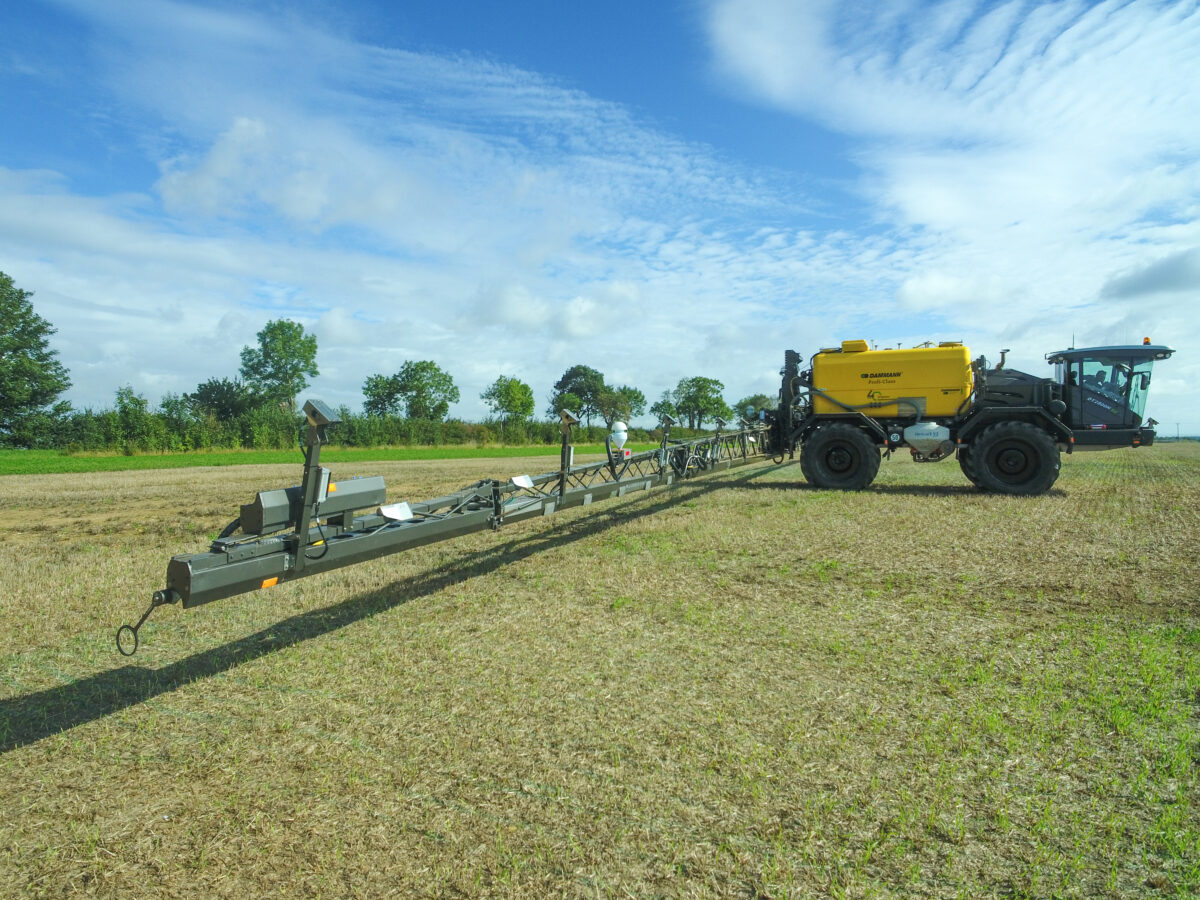Precision spraying technology: efficient, sustainable farming
“Dyson Farming is the first company in the UK to use this technology commercially, and we will continue to advance and refine its capabilities.”
Sustainable food production and food security are vital to the nation’s health and economy. Efficient, high-technology agriculture has a vital role to play in producing quality food that is both nutritious and environmentally sound.
One of the latest pieces of equipment being introduced is precision spraying technology. Here at Dyson Farming, we have been working in conjunction with the technology company, Bilberry, to develop a camera system to identify and spray crop protection products only on targeted weeds, thereby reducing the amount used on our crops.
Traditionally, crop protection products such as herbicides are applied using a sprayer, an essential piece of farming equipment used to control weeds. Weeds are a major issue as they create competition for the main crop, affecting its growth and yield potential. The fewer weeds there are, the less competition there is for the main crop, helping it to grow and protecting the health of individual plants. Reducing weeds also minimises the chance of contamination from unwanted weed seeds when the crop is harvested.
The new intelligent spot spraying camera technology means we no longer need to spray across entire fields; herbicides are only applied when weeds are identified.
How does it work?
A specialist camera network, made up of 12 cameras, is installed along the boom (arm) of the sprayer, which uses Red, Green and Blue (RGB) technology to detect and recognise weed species within crops. This technology can be retrofitted to any type or size of sprayer, making it flexible and compatible with many different machines.
As the sprayer operates in the field, algorithms within the onboard computer interpret the images collected by the cameras. As the computer identifies and detects a weed, it selectively turns the 144 nozzles, spread along the boom, on and off so it can apply the herbicide to the precise location, within 25 cm.
There are two different forms of this spot spraying camera technology: ‘Green on brown’, which is used post-harvest to pre-drilling, where it picks up green weeds on a brown surface. There is also ‘green-on-green’, the ability to spot spray herbicide on weeds in a growing crop. The green-on-green algorithms are currently used in wheat crops across the Dyson Farming Lincolnshire estate.
Dyson Farming is the first company in the UK to use this technology commercially and at scale and we will continue to advance and refine its capabilities. Work is being undertaken in conjunction with Bilberry to extend the weed detecting algorithms into other crops such as oilseed rape, maize, vining peas, potatoes, and sugar beet. Richard Lee, Dyson Farming’s Sprayer Operator, has the responsibility of operating the equipment that automatically captures images of a crop as it moves through the fields. These pictures are then sent to Bilberry, who use them to build, train and improve their algorithms to identify and detect target weeds.
Why are we using this technology at Dyson Farming?
This technology was introduced to Dyson Farming in 2020 to reduce the application of herbicides across our farms. As Richard Lee explains:
“Implementing this technology was seen by the team as being pivotal in increasing efficiency, productivity and protecting the environment. It allows us to selectively apply herbicides where they are needed and move away from a blanket spraying approach. We are seeing reductions of up to 70%-90% of herbicide applications when using this technology.”
What does this mean for the future of farming?
In a world where increasing importance is being placed on protecting and nurturing our natural resources, this technology will allow us to be more targeted with our crop protection products. As Ed Ford, Dyson Farming’s Technical Agronomist, who is leading the work in this area explains:
“This technology not only helps reduce input costs but importantly helps with protecting the environment. Looking forward it could also be used to gather information on other aspects of arable farming such as plant establishment and population data, tracking plants during different growth phases throughout the season which will give farm managers and agronomists actionable information that can be seen in real-time.”
The Estate Office,
Cyclone Way, Nocton,
Lincoln LN4 2GR
